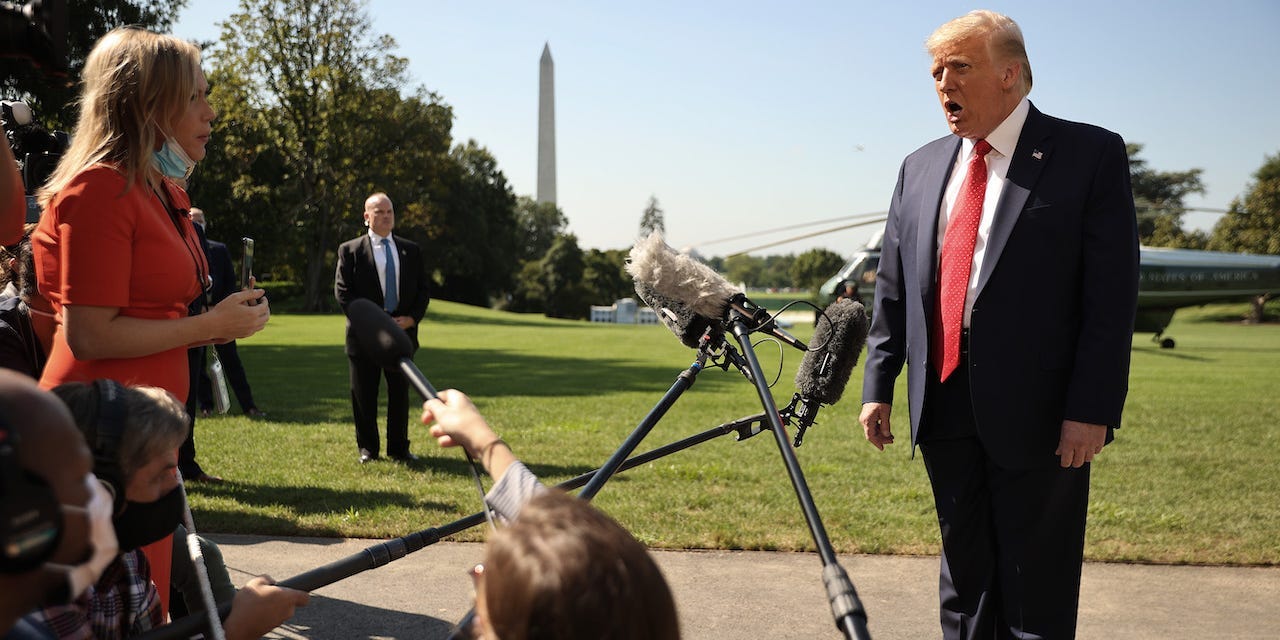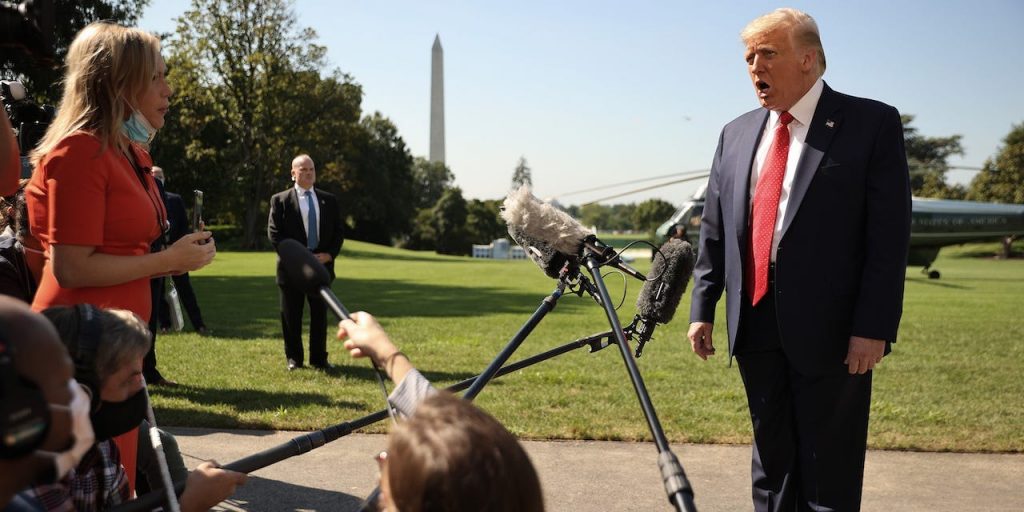
Chip Somodevilla/Getty Images
- The percentage of Republicans who have trust the national media has dropped by half since 2016.
- 35% of Republicans and Republican-leaning independents say they have "a lot" or "some" trust in media.
- Republican trust in the national media has seen a particularly dramatic drop since late 2019.
- See more stories on Insider's business page.
Between 2016 and 2021, the percentage of Republicans who have at least some trust the national media has dropped by half, falling from 70% t0 35%, new Pew polling found.
The partisan gap in trust of the press is the widest it has been since Pew began polling the issue shortly before former President Donald Trump took office five years ago.
The vast majority – 78% – of Democrats and Democratic-leaning independents say they have "a lot" or "some" trust in "the information that comes from national news organizations," according to Pew. Meanwhile, just 35% of Republicans and Republican-leaning independents say the same. There's a 53-point gap in trust in the media between liberal Democrats and conservative Republicans.
Republican trust in the national media has seen a particularly dramatic drop since late 2019, when 49% said they had at least some trust in the press. While a majority of US adults – 58% – still say they have at least some trust in the media, just 12% say they have "a lot" of confidence in the press.
Both Republicans and Democrats say they have more trust in local news organizations than in national media, although that trust has also eroded somewhat in recent years.
Trump's aggressive, years-long campaign against the national media has undoubtedly played a role in the rapid decline in trust in the media.
Trump's attacks on the media, including conservative outlets occasionally critical of him, was central to his political strategy. As a candidate and as president, Trump regularly denounced credible reporting that was unfavorable to him and his allies as "fake news," baselessly accused respected journalists of fabricating sources and information, and pushed for boycotts of media outlets he disliked. The former president also repeatedly advocated for stricter libel laws that would limit reporters' first amendment rights as his Justice Department secretly collected prominent reporters' private communications.
The Committee to Protect Journalists (CPJ) found that Trump "dangerously undermined truth and consensus in a deeply divided country" and encouraged foreign authoritarians to censor and punish the free press in their countries, according to the nonpartisan group's report published in April 2020.
CPJ was also critical of the Obama administration's prosecution of alleged government leakers and its inquiry into reporters who published stories about the leaked information.
Some media outlets also participate in attacks on their competitors. Conservative Fox News hosts, particularly those on the network's pro-Trump primetime shows, also frequently attack the "mainstream media," which they claim not to be part of, and accuse reporters and networks of being liberal or anti-Trump. Fox's Tucker Carlson, the host of the most-watched cable show in the US, has used his platform to baselessly accuse individual journalists of wrongdoing, inspiring some of his followers to harass those reporters online.
Fox's network competitors, including MSNBC and CNN, often use their own airwaves to accuse Fox of being a mouthpiece for the GOP and right-wing propaganda.
The Pew poll surveyed 10,606 people between June 14 and 27 and has a margin of error of 1.5 percentage points.

